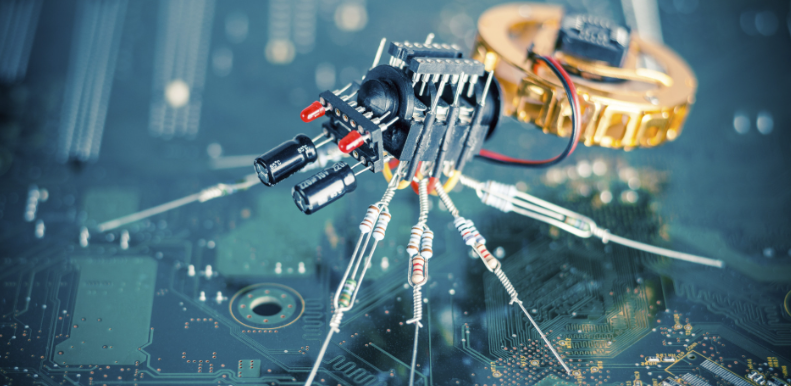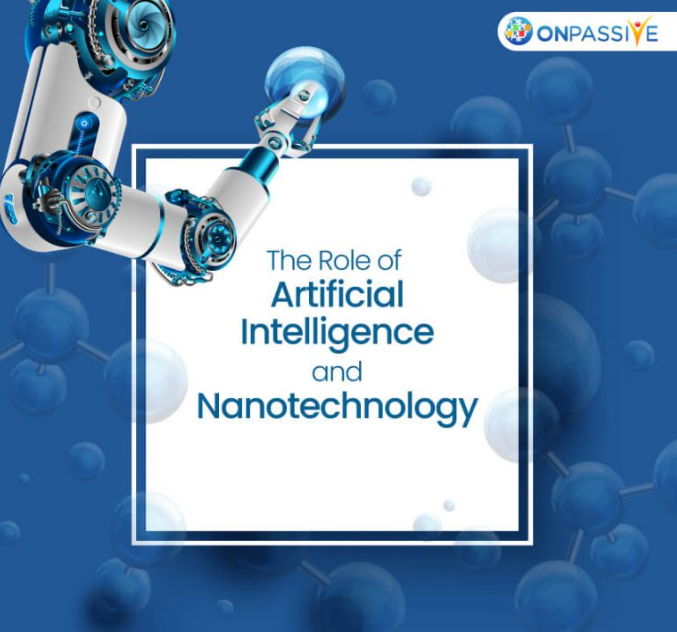The Cooperative Link: Nanotechnology and Artificial Intelligence
Introduction
Scientists, researchers, and visionaries have long been captivated by the domains of nanotechnology and artificial intelligence (AI). Although these fields have varied areas of concentration, their interconnection has the ability to transform a variety of sectors, including healthcare, electronics, environmental preservation, and more. This blog post will explore the association between nanotechnology and AI, how they mutually benefit one another, and their immense potential to mould our future.
Nanotechnology: A Small-Scale Revolution
Nanotechnology involves the measurement of materials and structures at the nanometre scale, equivalent to one billionth of a metre. Thanks to this branch of science, scientists can manipulate matter at the atomic and molecular levels. This technology has already had a significant impact on a number of sectors, including healthcare, materials science, and electronics.
1. Healthcare: Nanoparticles can be utilised to target cancer cells directly with medications, limiting unnecessary harm to healthy tissues. This concentrated approach could revolutionise cancer treatment.
2. Technology: The advent of nanoscale transistors and circuits has paved the way for smaller, faster, and more power-conserving electronic gadgets. This has led to breakthroughs such as smartphones and wearable tech.
Artificial Intelligence: The Intellect within Devices
The primary objective of AI is to create smart computers that can perform tasks ordinarily necessitating human intellect, like understanding language, solving problems, learning, and reasoning. Due to machine learning and deep learning algorithms, AI systems are now able to assess vast amounts of data and make independent decisions.
Commencement of the Collaboration: AI Enhancing Nanotechnology
1. Material Examination: By utilizing AI algorithms, investigators can expedite the identification of innovative materials for specific utilities by predicting the attributes of nanomaterials. This accelerates the fabrication process of new materials with superior properties such as resilience, conductivity, or thermal resistance.
2. Accurate Fabrication: Nanoscale manufacturing processes supported by AI tend to be more efficient and precise. AI can enhance the production of nanoscale devices such as transistors, detectors, and medication delivery systems by controlling atomic and molecular arrangement.
3. Pharmaceutical Discovery: AI scrutinizes vast biological datasets to identify potential pharmaceutical candidates and predict their behavior within the body. Following this, nanotechnology comes into play by accurately conveying these medicines to their intended organs.
Improving AI with Nanotechnology
1. Upgraded Computing: The integration of nanoscale components can boost the processing power and power effectiveness of AI technology. This could potentially lead to more proficient AI systems capable of executing complex tasks instantaneously.
2. Detection and Sensors: Introducing Nanosensors to AI systems can provide unprecedented data inputs. For example, incredibly sensitive nanoscale sensors could potentially transform environmental monitoring by permitting AI to examine and respond to modifications in real time.
3. Brain-inspired computing: Nanotechnology can be used to develop computer systems that emulate the structure and functions of the human brain. These systems can significantly amplify the abilities of AI to process intricate data and adjust to evolving environments.
Issues and Moral Dilemmas
Notwithstanding the substantial promise held by the fusion of nanotechnology with AI, it’s not without its inherent challenges and moral dilemmas. As these technologies advance, privacy, security, and ethical usage concerns must be dealt with.
Closing Remarks
The link between artificial intelligence and nanotechnology exemplifies the remarkable prospects that interdisciplinary collaboration can yield. We can anticipate considerable transformations in sectors like medical, electronic, energy, and several others as these domains continue evolving. Yet, these advancements need to be met with cautious evaluation.
Find out the capabilities of Advanced AI for you, become a part of the ONPASSIVE Community.
Click Here




